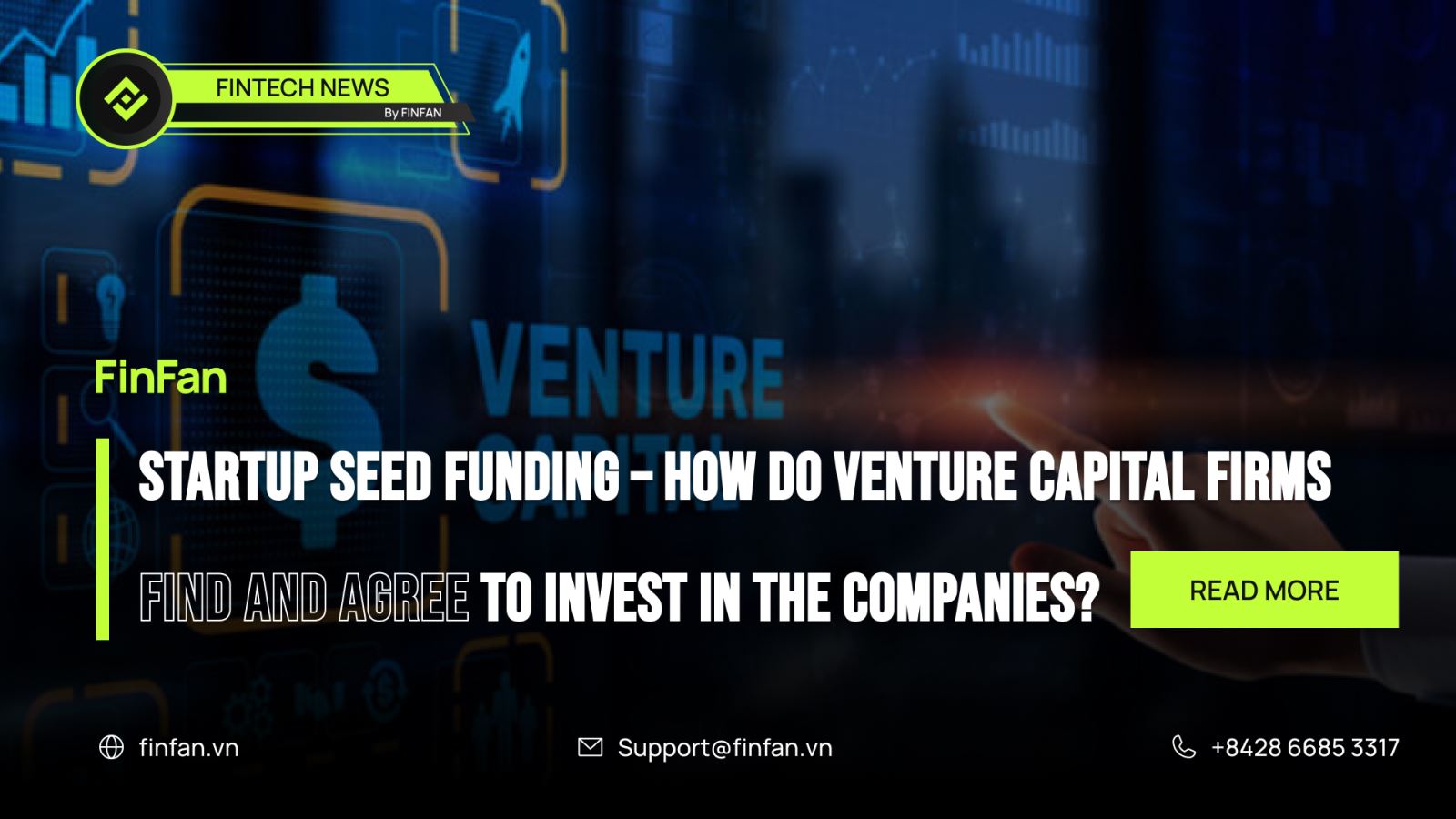Startup seed funding – How do Venture Capital Firms find and agree to invest in the companies

Like the content of the article “What do startups need after startup seed funding?” we know about many factors (not only the amount of money) that startups need after the seed funding.
On the opposite side, Venture Capital (VC) Firms want to find out the startups to invest in, they also need several essential factors to be able to carefully choose the companies that are worthy to invest in.
How do Venture Capital Firms find and agree to invest in startup companies? Here are the answers to this question.
Strategies for Venture Capitalists (VCs) to discover startup investments.
Normally, a strategy to find investors of VCs usually consists of 3 steps:
- The first thing to do is find companies that have the desire to receive large, valuable investments rather than ordinary SME enterprises. This is often shown in job boards and internet traffic reports. Venture capitalists can be based on the indicators shown in the above reports to able to find out for themselves the most potential companies in their area of expertise to invest in.
- The second thing is clearly expressing your investment views as well as your investment strategy on your personal blog or online website. Although this level of indiscretion was once frowned upon in the industry, up to 15 percent of active venture capitalists now have an online presence that increases their investment opportunities by positioning them as trustworthy experts.
- Use some investment platforms for VCs or investors like the ones mentioned by FinFan in an article as well as some traditional social media platforms like Facebook, LinkedIn, Twitter, etc. You can search for opportunities to seek early-stage investments as well as to join investment syndicates.
How do Venture Capitalists agree to invest in startups?
Venture capitalists (VCs) will gather the applications of companies wishing to seek investment capital. This stream of investment opportunities is called deal flow.
The higher the deal flow, the more likely it is that the VC can fund promising ventures. These applications are reviewed and some of the companies are invited to submit a pitch.
In the process of carefully selecting companies to invest in, venture capital funds often pay attention to the following 5 factors:
- An exciting idea that is suitable to solve the problems of a promising market.
- An experienced management team with a stellar track record or potential to take high revenue and profit.
- For taking high revenue and profit, the companies need to have products or services with industry-leading potential.
- The potential for an initial public offering (IPO) or many potential strategic buyers.
- The potential for a 1,000 to 3,000 percent return on investment in three to seven years.
When companies fulfill or meet the above factors, companies will have the opportunity to be invited to speak to venture capitalists about their fundraising plans.
After the investment agreement, venture funds will go through a due diligence process to clearly understand the history, background and finances of the company in question to make an informed investment decision.
Note for the startups!
If you're asked to pitch for a VC firm, you should create a pitch deck. This is a presentation with information about your products and services, the problems they solve, your business model, risks and barriers to market entry, industry size and growth potential, marketing strategy and target audience, executive team, valuation story, and investment strategy.
The types of fundraising before seed funding that startups can consider before raising capital from venture capital funds.
As the mentioned in article Startup funding for small businesses in Vietnam, we know that startups have many choices to raise their capital before seed funding like bank loans, State support loans, self-funding, etc.
Each of these choices has its own advantages and disadvantages. However, all these investors want to see your achievement and success to take back their investments including with a little profit in the pre-seed of startups that they invested in.
From the seed stage to the early stage is the right time for you to raise capital from venture capital funds. At that time, startups with breakthrough, unique products that can serve a wide market will be more attractive to investment funds of this type than startups with niche products and only for a certain market.
Furthermore, startups need to have products or services that can make a profit, meaning that they can sell for more than the manufacturing cost. They also want to make sure that your product or service meets all applicable government regulations.
In short, not only startups but also venture capital investors need to have carefully calculated strategies for their investment funds because the products they bring to the market are finance and necessary mentoring for startups.
The meeting and cooperation between startups and venture capital funds also need to have a charm and harmony in the use of capital as well as calculate the most effective strategy to launch products to the market and gain radical profits or else capture a high market share when getting as many users as possible for startups that both put their money and enthusiasm into it.